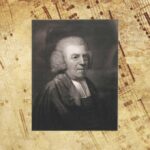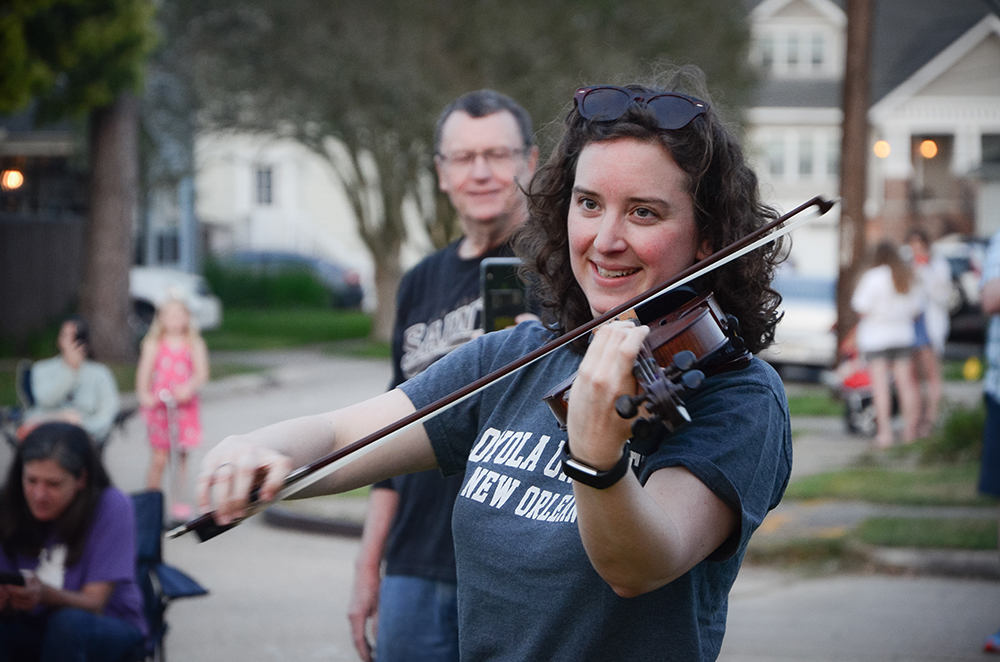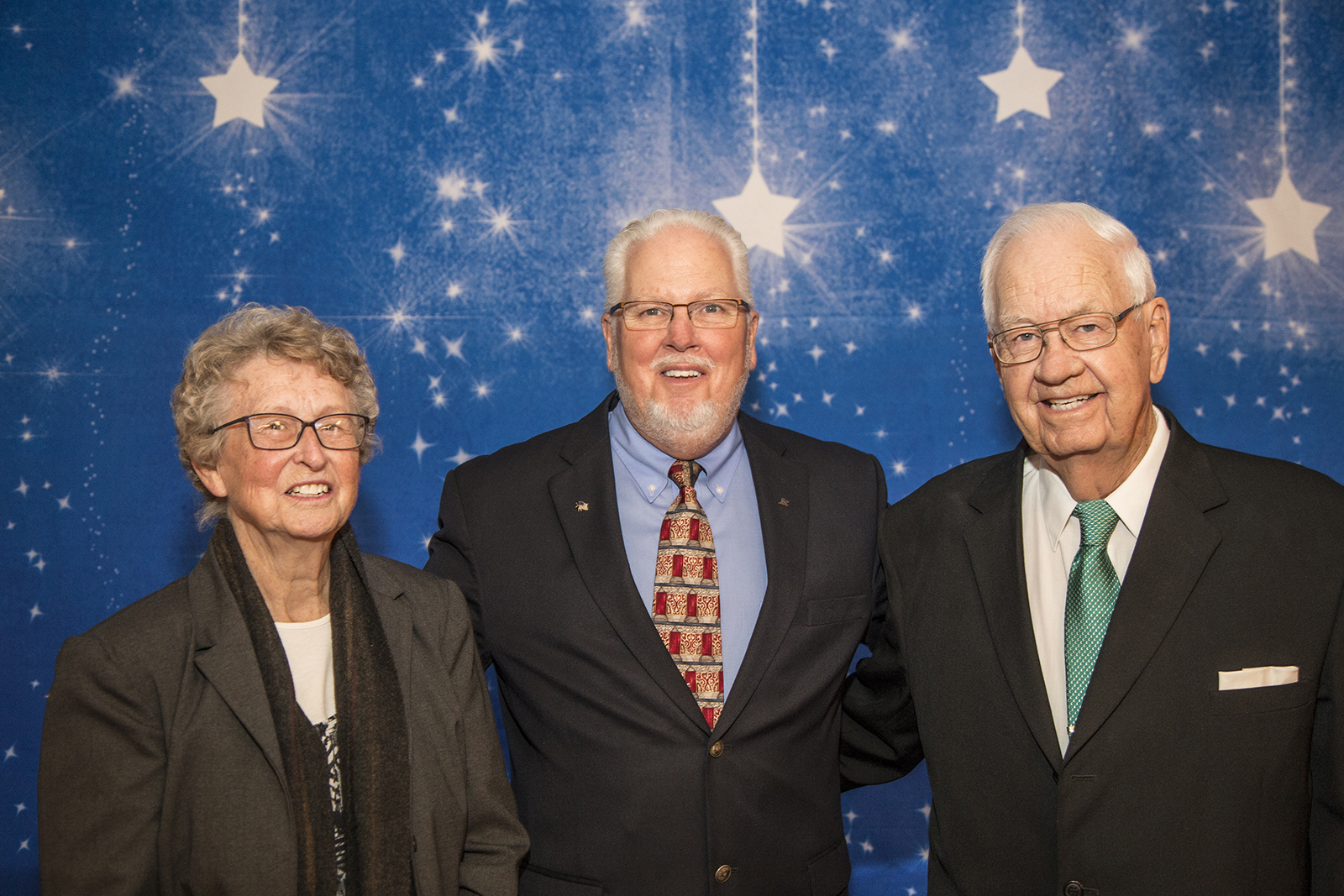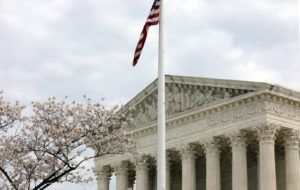
EDITOR’S NOTE: Modern hymn writer Keith Getty has written a series of essays, each focusing on a Christmas hymn or carol. This is the last of an 11-part series in Baptist Press.
NASHVILLE (BP) — On that first Christmas night, the skies above the shepherds’ field were filled with hosts of choiring angels. But even before Jesus lay in the manger, His miraculous story was being told in song. Mary sang about Him in the Magnificat (Luke 1:46-51) and Zechariah sang about Him in the Benedictus (Luke 1:68-79).
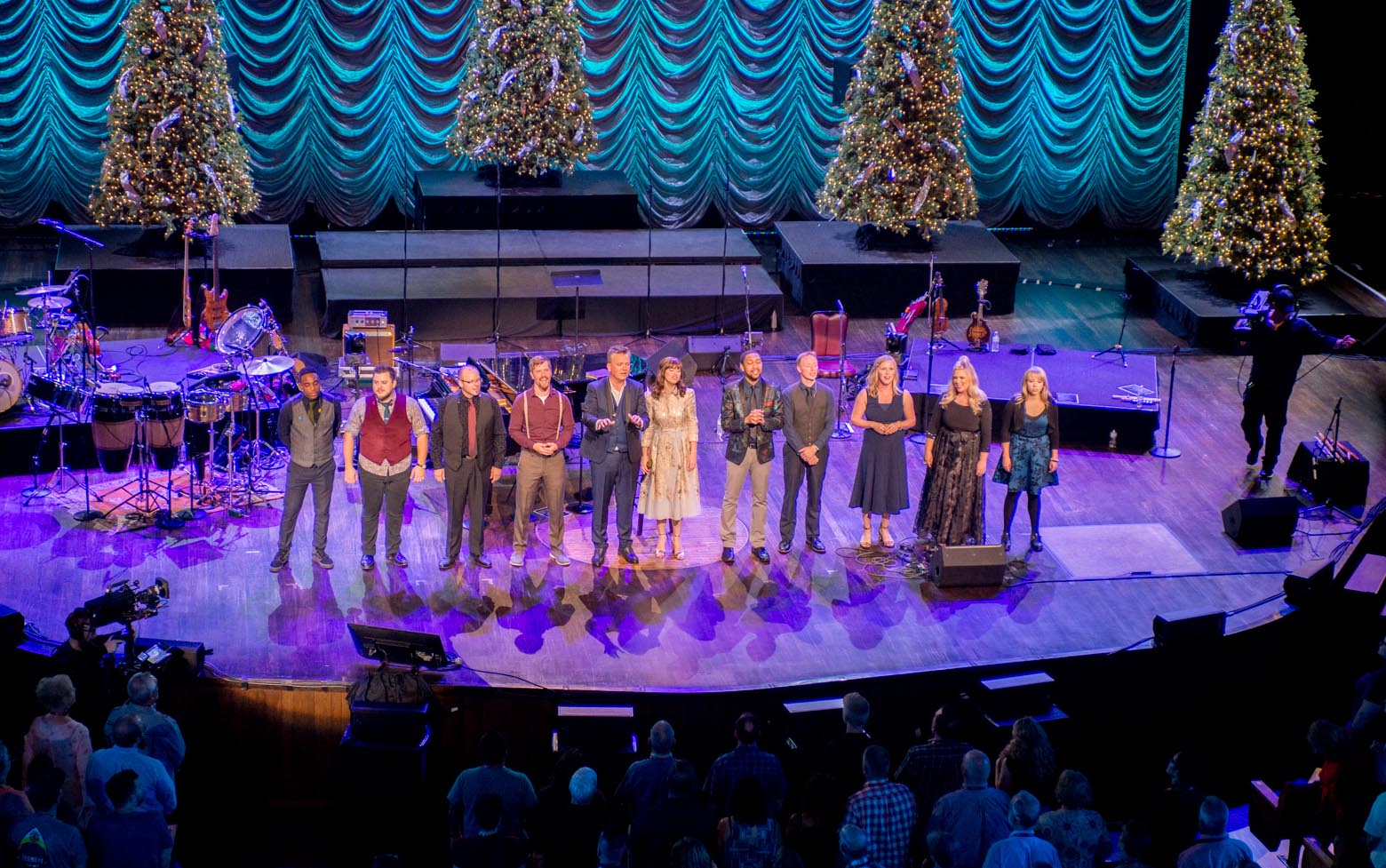 Throughout the Bible, singing was used to declare the goodness of God. And there are at least 50 commands from God to sing His message of grace and truth together. We have been created, compelled and commanded to sing. And Christmas is a wonderful time for us as Christians to sing traditional Christmas carols — songs that plumb the richest doctrinal depths, songs that help us absorb and reflect on the deep and transformative truth of Emmanuel, God with us. But it’s also a wonderful opportunity to express this truth to those around us.
Throughout the Bible, singing was used to declare the goodness of God. And there are at least 50 commands from God to sing His message of grace and truth together. We have been created, compelled and commanded to sing. And Christmas is a wonderful time for us as Christians to sing traditional Christmas carols — songs that plumb the richest doctrinal depths, songs that help us absorb and reflect on the deep and transformative truth of Emmanuel, God with us. But it’s also a wonderful opportunity to express this truth to those around us.
Christmas can be the biggest evangelistic event of the year. The very act of singing traditional carols is a radical Gospel witness; it reveals the hope of the world to those in our midst who are singing about Him or listening to songs about Him but have yet to believe in Him.
So here are 10 Christmas carols that will help us revel in the mystery of the incarnation but will also help us share God’s heart with our friends and families, our colleagues and communities.
1. “Hark! The Herald Angels Sing” was penned by Charles Wesley and included in his 1739 Methodist hymnal. This theologically rich classic is unlike many other carols; it embodies the entirety of the Gospel. It moves us on from the idea that Jesus’ birth is confined to a sweet childlike nativity scene — instead, it forces each of us to confront the raw and powerful truth of who Jesus is and what He came to do: “Born that man no more may die / Born to raise the sons of earth / Born to give them second birth”.
2. “Come, Thou Long Expected Jesus” appeared in Charles Wesley’s book of 18 Christmas songs in 1745, and it’s one of my three favorite hymns today. The song captures how centuries of waiting, longing and weeping find ultimate resolution in Christ. It is probably less familiar to a younger audience, but the words express a timeless truth: we all need hope, and we all have a longing inside of us that can only find fulfilment in Christ. “Hope of all the earth thou art / Dear desire of every nation / Joy of every longing heart.”
3. “O Come, All Ye Faithful,” most likely written by hymnist John Francis Wade in 1744, is a Christmas call to worship; it beckons us simply to come and adore “Christ the Lord.” Whether it’s sung a cappella or with a big brass band, this carol sings beautifully. And it’s a carol that will connect with just about every person who enters our churches over this Christmas season, as so many of us will have sung it at school assemblies and nativity plays as children!
4. “In the Bleak Midwinter” is among our most plaintive carols, partly because of the melancholic melody by Gustav Holst. Penned by English poet Christina Rossetti, the lyrics first appeared in 1872. The last stanza brings us to a place of personal reflection and response — what should we do about the message of Jesus’ birth? What does the Gospel story require of each of us who hears it? “What can I give him, poor as I am? / If I were a shepherd, I would bring a lamb; / If I were a wise man I would do my part, / Yet what I can I give him: give my heart.”
5. “Joy to the World,” with its triumphant cadence and rousing spirit, is unsurprisingly one of the most popular carols. Written by Isaac Watts in 1719, it is based on Psalm 98 and wasn’t even originally intended to be a Christmas carol. Yet no Christmas concert or Christmas Eve service would be complete without it. It is a joy-filled declaration of God’s goodness.
6. “O Come, O Come Emmanuel” is a medieval Latin hymn dating from the 800s. It’s easy to imagine a candlelit cathedral filled with the pensive strains of this metrical chant. The haunting melody draws us to place of deeper reflection, especially as it contrasts so powerfully with the more exuberant praise-filled carols. It allows people both inside and outside our churches, for whom Christmas may not be the time of joy they feel it should be, to reflect on and connect with a carol that expresses a deeper longing for God’s promises to be fulfilled.
7. “Silent Night” is arguably the best-known Christmas carol in the world; it has been translated into 300 languages and dialects. Originally a poem with six verses written by Joseph Mohr, an Austrian priest, in 1816, the repetition in each stanza of the line “Silent Night, Holy Night” evokes tranquility, stillness, mystery — a heart’s cry for the kind of peace that only Jesus can bring.
8. “Angels We Have Heard on High” is one of the most joyful and well-written choruses ever composed. The lyrical journey shines a light on the reality of the incarnation in a way that refreshes the soul. This carol contributes wonderfully to that sense of celebration expressed by the angels in the Gospel of Luke. And the first line and chorus, “Gloria in excelsis Deo” provides a fun vocal exercise for anyone who sings it!
9. “O Little Town of Bethlehem,” written in 1867, was inspired by Philadelphia pastor Phillips Brooks’ visit to Bethlehem. The first three verses take us through the events of the night Christ was born with the fourth and last verse culminating in a heart-felt response: “Cast out our sin and enter in / Be born in us today.” Often a favorite with children, it was in fact first sung by a group of Sunday School children and their teachers.
10. “Once in Royal David’s City” is perhaps less popular than it used to be, but we mustn’t lose its message or music. Cecil Frances Alexander was an Irish pastor’s wife who published this carol for children in 1848. It ultimately reminds all who sing it of the humanity of Jesus and the tremendous mystery of God becoming man: “He was little, weak, and helpless / Tears and smiles, like us He knew.”
These 10 carols are treasures that cause all of us, Christians and non-Christians alike, to pause and remember that hope has dawned; the promised Messiah has come, and the world will never be the same again. O come, let us adore him — Christ the Lord!
About Keith & Kristyn Getty
Keith and Kristyn Getty are modern hymn writers whose compositions are sung the world over. For more information on Getty Music and the Sing! initiative, visit www.gettymusic.com.

